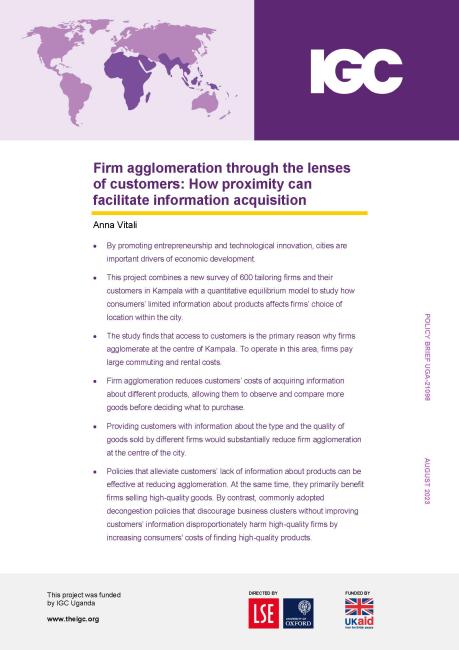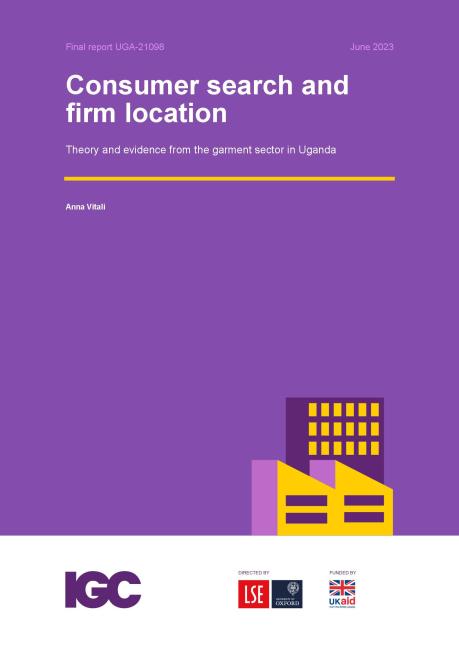Informal clustering, firm growth, and the impact of the COVID-19 shock
In Kampala, firms are heavily concentrated in the Central Business District (CBD), where they operate next to one another in high-density, informal clusters (UBOS 2011). Manufacturing firms operating in these clusters are smaller than in terms of number of employees and do not grow over time. Demand shocks that arise from COVID-19 are likely to be more severe in denser locations for two reasons:
- Customers may be reluctant to shop in crowded areas for fear of contracting COVID-19;
- Given that the majority of the population lives outside the CBD, transport-related restrictions are likely to reduce the flow of customers travelling to these areas.
This study will collect data from 600 firms and 600 customers in the tailoring sector across Kampala to answer the following questions:
- What are the key drivers of firm location decision and how does location affect firm performance?
- How does COVID-19 impact firms operating across different locations within a city?
This research will shed light on the potential effects of policies promoting urbanisation and firm growth in the country. On the other hand, understanding the impact of COVID-19 restrictions on businesses operating across different locations is important for the efficient targeting of assistance policies that can enhance firm resilience during and after the pandemic.




